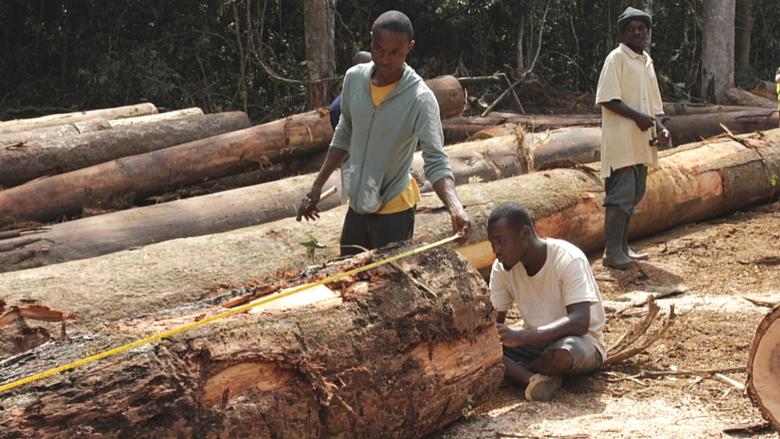Africa-Press – Rwanda. In late 1970s, Rwanda and Gabon shared a very interesting form of diplomacy that may have been completely swept under the carpet, either by the trap of time or politics.
In 1960, Gabon joined the United Nations, but later in late 70’s the government of Gabon informed the UN about something quite baffling. The country had a very small number of males compared to females. Gabon received independence in 1960 with a total population of only 499,184 under the first President Léon M’ba.
During that period, the World Bank statistics showed that Gabonese female population had reached an all-time high of (259.575) representing 52.105 % in 1971 under the second President, Albert-Bernard Bongo, but later converted to a Muslim and acquired a new name El Hadj Omar Bongo Ondimba – the father of current President.
It was argued that Gabonese men were highly fathering girls and few managed to have baby boys. The government promised to reward any man who had fathered a baby boy.
The rewards included, a brand new Mercedes Benz sedan, a new house, a triple refund of dowry and loads of cash to the man. However, the Gabonese men were largely fathering girls and this was a complete national dilemma.
Gabon badly needed males to create a national army and workforce to ensure that the state functioned efficiently. The government started courting other friendly nations including Rwanda.
The UN, through its Refugee Agency UNHCR, had to come up with a quick solution. A careful selection of males was conducted through refugee camps hosting Rwandans who had fled their country in 1959.
Rwandan refugees were mostly scattered in official UN camps in Uganda, then Zaire and Burundi among others. It is from these camps that ‘able’ men were selected and registered, and promised to go and work in this West African country.
Nkurunziza Jean Paul [not real name because of sensitivity of the matter] told Taarifa that in 1980, he was in Burundi when a white UN staff was combing through the refugee camps looking for energetic young men, and Nkurunziza was among the few selected.
“From our camp, a total of 120 young men were selected and a few weeks later we flew aboard a UN plane up to Libreville the capital of Gabon,” Nkurunziza remembers the entire trip and it was his first time on a plane.
At around the same time, another group of Rwandan refugees was selected from Kahunge [Gahunge] Refugee settlement camp and other refugee camps in western Uganda for this UN mission to Gabon.
Mukandutiye Rose, a former refugee in Kahunge settlement camp in Uganda, remembers the jubilation when her son, Paul, was informed that he had been selected for a UN scholarship program to another country.
“Paul left when he was 16 years,” she recalls.
“We only used to receive postal letters once in a while and suddenly there was no more communication. I lost hope for my son. We later met in Rwanda in 1995,” Mukandutiye said.
Inside Rwanda, President Habyarimana also provided hundreds of energetic youth for assignments addressed as UN jobs in Gabon. While in Gabon, Nkurunziza remembers that he, and his colleague, were treated excellently.
They operated lumbering machinery, but slept in hotels. They were told if any of them in the team married a Gabonese woman, the government was ready to facilitate them. Nkurunziza married a Gabonese wife and all dowry and custom requirements were footed by the government and later “we had a baby girl.”
“My friend and housemate also married a Gabonese woman and they had a baby boy,” Nkurunziza said, adding that for his colleague, “the government bought him a house, refunded him all the dowry multiplied by three and gave him a Mercedes Benz sedan and was granted immediate citizenship.”
Nkurunziza’s fate was different. “I fathered a girl, and I was returned to Burundi in 1982. I don’t know how I will ever meet my daughter again. I lost contact with my former housemate. But we had remained in constant communication by phone until later when I joined the struggle to liberate Rwanda,” he narrates.
According to the World Bank figures, today Gabon has a population of 2.025 million people. By the end of 2017, Gabon had a population of 888,772 female. The country has more men now.
President Paul Kagame chats with his Gabon counterpart Al Bongo Ondimba in the capital Libreville, on Monday. Rwanda and Gabon still enjoy warm diplomatic ties and the two countries’ flags are strikingly similar.
One has to tilt the flags upside down to distinguish their colour patterns, except that the Rwandan flag has the sun in the top right corner of the sky blue colour.
On Monday, President Paul Kagame flew to Gabon to check on his counterpart, Al Bongo Ondimba, who is recovering from a stroke he suffered in October last year during an official visit to Saudi Arabia.
“I am glad that there is significant improvement to his health that has led to the resumption of his responsibilities,” Kagame said.
Meanwhile, in February 2018 Kagame hosted President Bongo in Kigali when the two leaders held bilateral talks and pledged to promote trade and investment as well as cooperation between the two nations and people.
Notes
Editors note:
Taarifa first published this story in June 2019
For More News And Analysis About Rwanda Follow Africa-Press






